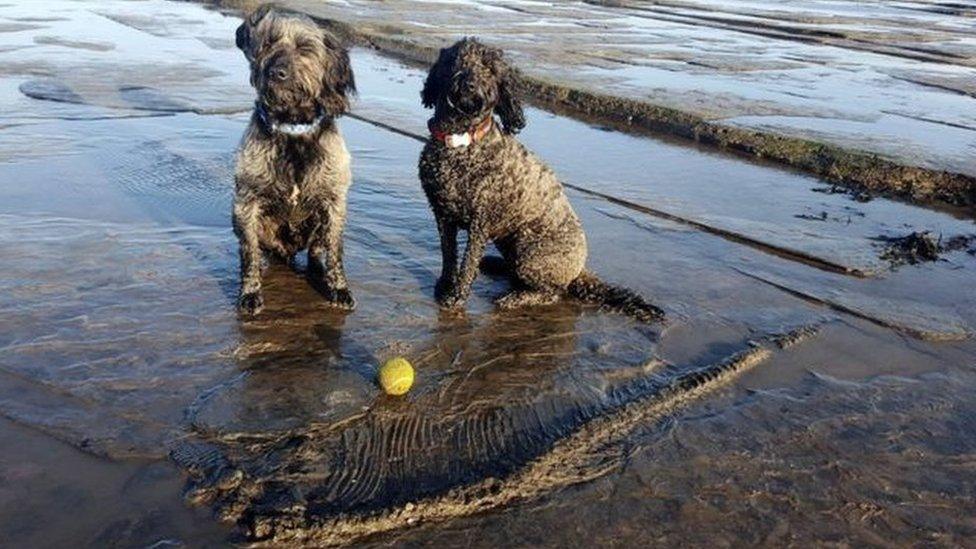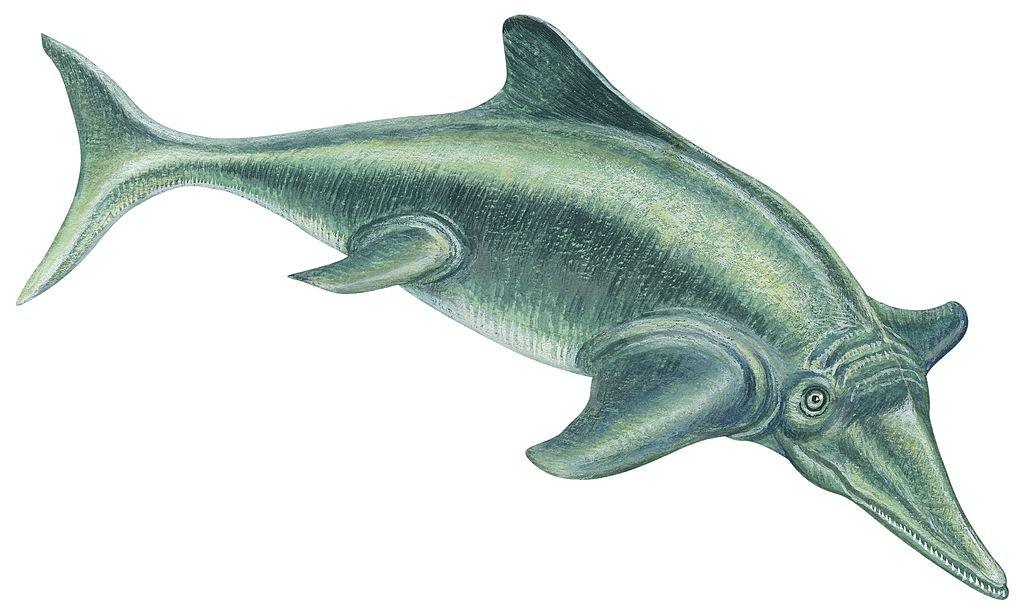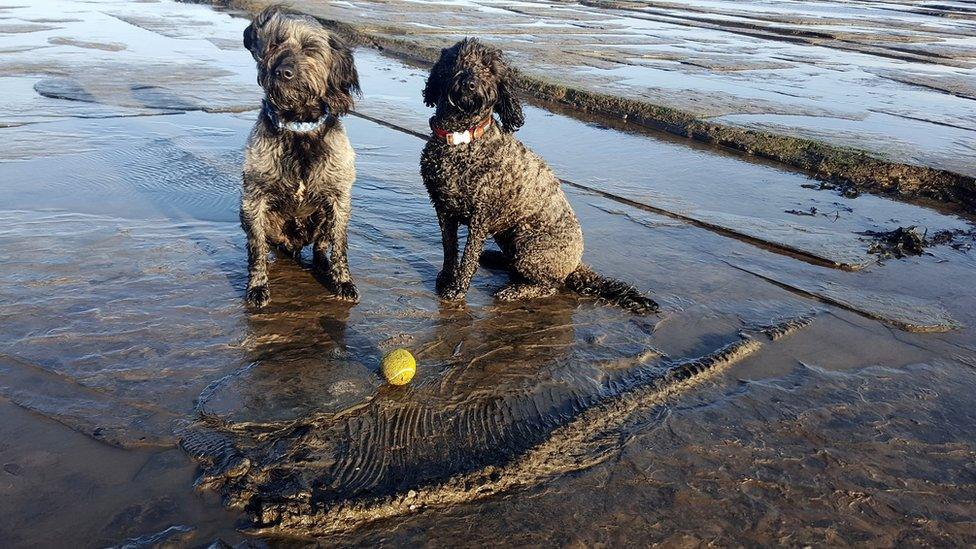Ichthyosaur fossil found by dogs to go to Somerset museum
- Published

Poppy and Sam helped find the fossil on the beach in Somerset
A fossil of a sea creature dating back 190 million years which was found by dogs on a beach is to go on display.
The ichthyosaur was discovered by Jon Gopsill and his pets, Poppy and Sam, on the shore in Stolford, Somerset, in December.
Palaeontologists are trying to determine whether it is a new species of the extinct marine reptile.
South West Heritage Trust said the 5ft 5in (167cm) long fossil will eventually go on show at The Museum of Somerset.
The trust's Beth Jerrett said the discovery of small fossils was fairly common but it was rare to find such a complete specimen and in this case, only the head was missing.
Palaeontologist Dr Andy King told BBC Radio Somerset the fossil had been nicknamed Poppy, after Mr Gopsill's dog, and it was undergoing cleaning.
"The next stage after that is to consolidate and harden the rock that [it] is in and it really is only at that last stage that we'll have an indication about what the species is and whether or not it is new.
"It's a very significant part of the local heritage."

What is an ichthyosaur?
Often misidentified as "swimming dinosaurs", they first appeared in the early Triassic period (251 million to 199 million years ago)
The name means fish-lizard, although the creature has been classified as a reptile since the mid-19th Century
Its length ranged from 3ft 3in (1m) to 46ft (14m)
The creature was noted for its sharp, robust teeth
Ichthyosaurs became extinct around 90 million years ago
Source: Encyclopaedia of Palaeontology

The ichthyosaur was a dolphin-like reptile which is thought to have lived in the sea millions of years ago
- Published20 January 2020

- Published19 December 2019
